|
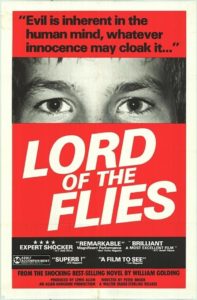
Synopsis:
When a group of young British students are stranded on a deserted island after a plane crash caused by an atomic blast, they quickly devolve into fighting factions: Ralph (James Aubrey) — who is eventually voted leader — pairs up with a bespectacled, chubby boy nicknamed Piggy (Hugh Edwards), while a group of choir boys are headed by a knife-carrying boy named Jack (Tom Chapin) who is obsessed with the presence of a “beast” in the jungle.
|
|
Genres, Themes, Actors, and Directors:
- Deserted Island
- Peter Brook Films
- Survival
Review:
Peter Brook adapted William Golding’s disturbing cult classic via the low-budget strategy of using the novel as a source rather than crafting a script; he filmed for three months in Puerto Rico, and ended up with over 60 hours of footage. In a cast and crew reunion documentary entitled Time Flies (1996), Brook stated: “There was only one thing needed for the project, and that was absolute freedom… All I need[ed was] a beach, some children, and a camera”. He added that the only “100% professional film technician” he could afford to collaborate with — other than DP Tom Hollyman — was co-producer/editor David Feil, who was apparently tasked with simply turning his second camera in the direction of any details that might help advance the story or provide insight into the characters; no formal compositions were crafted. Later in the editing room with Feil, Brook viewed the emergent film as a combination of two types of shots: a) essential shots that were critical to telling the story, and b) everything else.
The result is a fascinating portrait of organic, lethal anarchy. Left to their own devices, the boys inevitably turn on one another and devolve into madness, spurred on by the particularly paranoid Jack (Chapin). For better or for worse, Brook cast the film according to what he saw as character types in the boys, allowing them simply to enact their own selves within the skeleton of the script. (Meeting up decades later for Time Flies, Brook was curious how much the film had impacted the boys, and/or how much they still resembled their characters; while artistically sound, this was clearly a problematic choice to reveal to them after the fact.) With that said, the boys’ naturally powerful performances — as well as Hollyman’s stark cinematography, the isolated settings, and Raymond Leppard’s unique soundtrack — all contribute to the film’s success. This remains an appropriately terrifying tale about leadership (or lack thereof) run amok, one which readers and viewers should continue to revisit — especially in light of current and ongoing world events.
Redeeming Qualities and Moments:
- James Aubrey as Ralph
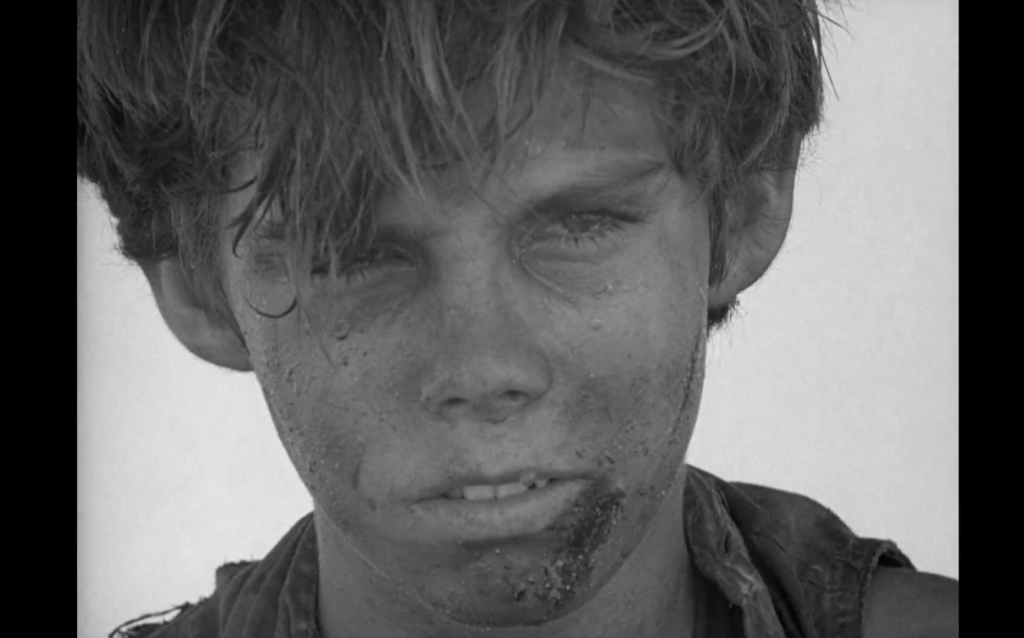
- Tom Hollyman’s cinematography
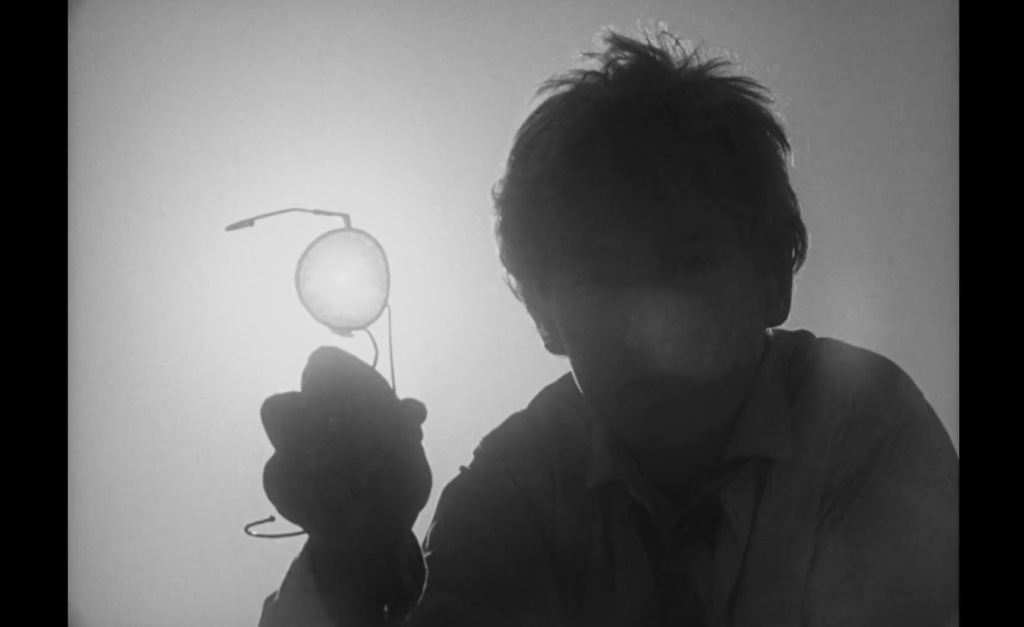
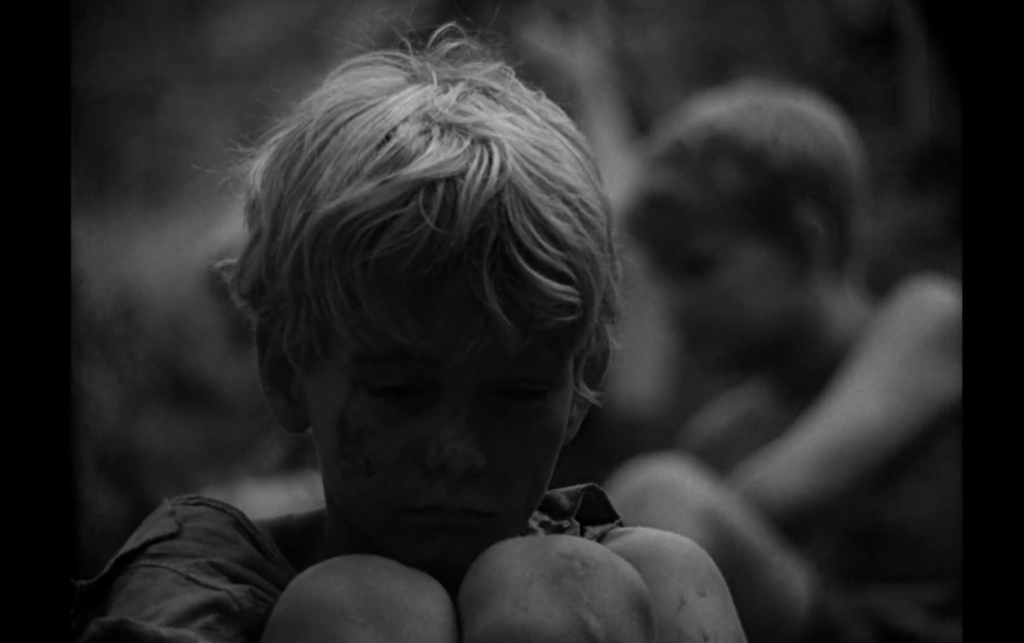
- Fine location shooting in Puerto Rico
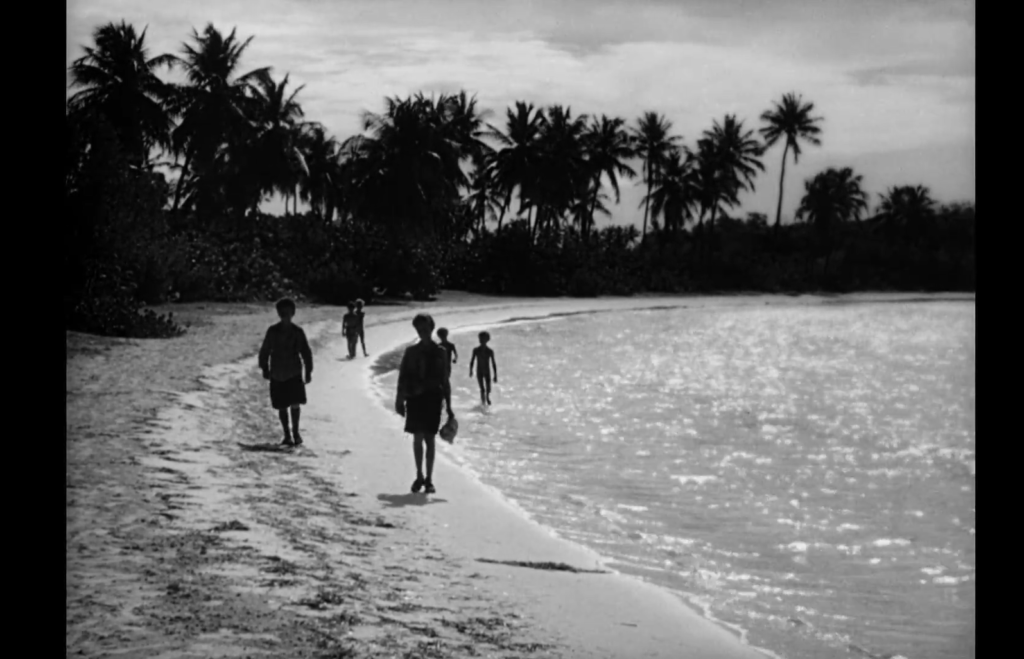
- Many frightening scenes
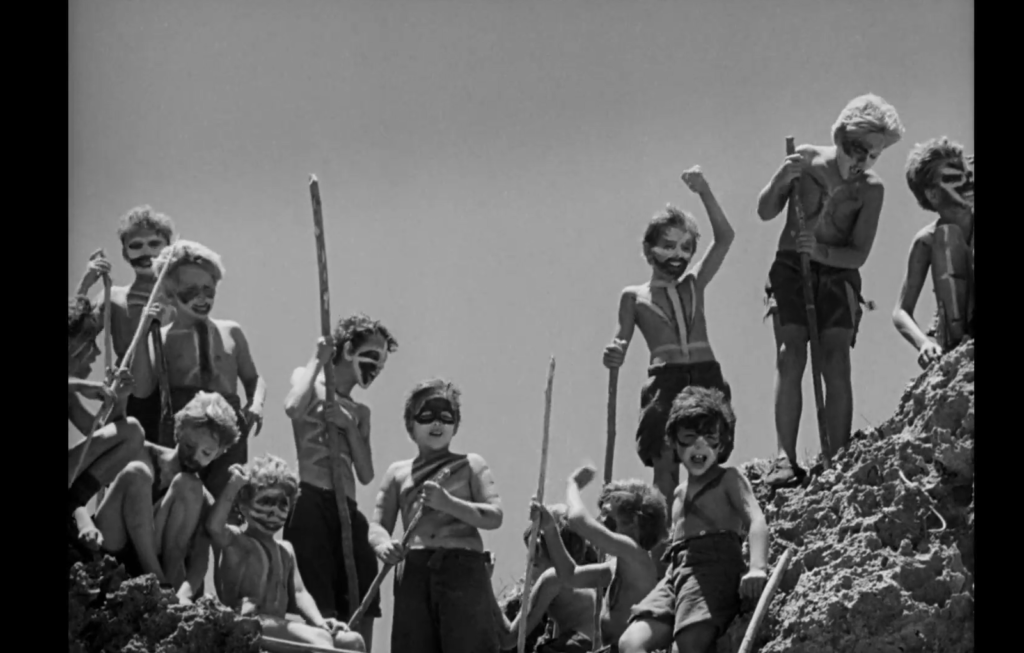
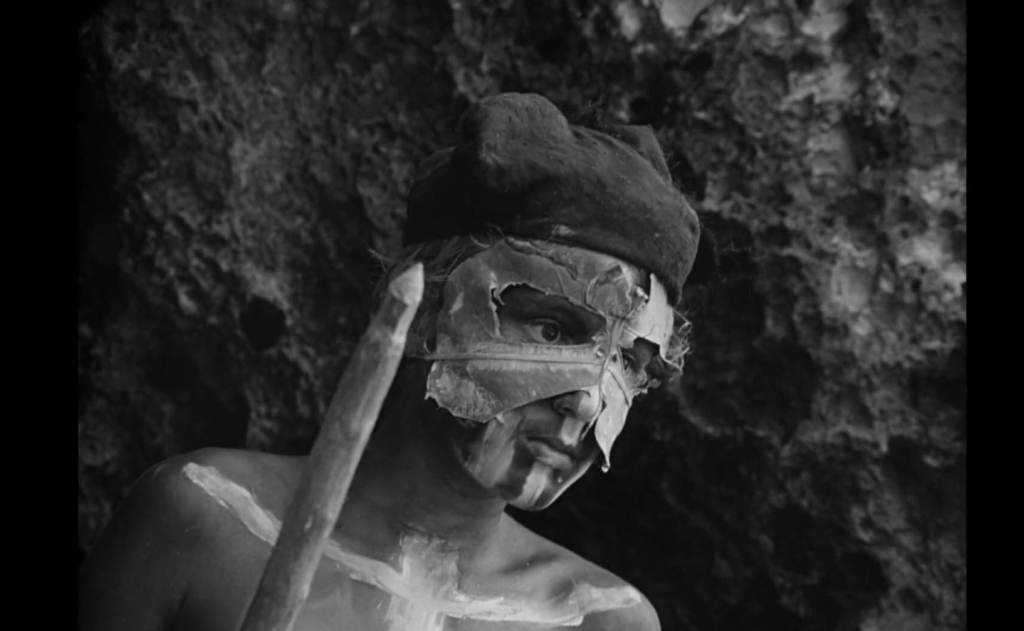
- Raymond Leppard’s unique score
Must See?
Yes, as a still-powerful literary adaptation.
Categories
Links:
|







One thought on “Lord of the Flies (1963)”
A once-must, as a worthy cult classic.
As per my post (4/17/20) in ‘Revival House of Camp & Cult’ (fb):
“Are there any grownups?”
‘Lord of the Flies’: I’d seen Peter Brook’s film of the William Golding novel years ago. It’s only this past week that I finally read the book. ~ then rewatched the film… which is reasonably faithful in many respects but it might be better appreciated by those who have read the book. …Yes, I know – that chestnut caveat: ‘The book is better.’ That may or may not be true depending on the book and what is done with it. In this case, a decision was made to keep the film short (90 minutes). That was probably a wise decision since the book leisurely unravels in ways that may not have translated visually. The film gets across the theme of man’s tendency to give in to the darker nature – so I wouldn’t want to dissuade anyone from watching it. It’s certainly very well photographed and there’s much to recommend it. It does highlight one quibble I had about the book: Among 40-some boys, only *one* wears eyeglasses?! (~ used for starting a fire.) Maybe… and there being only one pair does increase the tension… but still… My only real disappointment re: the film was the decision to excise the sequence (in the book) in which the sacrificial head of the pig ‘talks’ to Simon, thus channeling the Lord of the Flies. The film *begins* to do the scene – even effectively – but then it opts out. (Was it considered too ‘silly’ for film?) I think that’s a real shame – since that sequence, more than any other, seems to be the thrust of the novel.